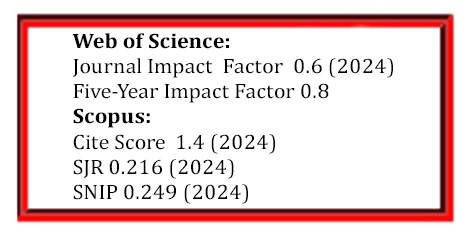Corrosion Properties of Electropolished AISI 316L Austenitic Biomaterial in Relation to Electropolishing Conditions
DOI:
https://doi.org/10.5755/j02.ms.27679Keywords:
austenitic biomaterial, electropolishing conditions, corrosion resistance, electrochemical impedance spectroscopy, exposure immersion testAbstract
Electropolishing is recommended for various biomedical applications of austenitic biomaterials because it enables to achieve high brightness, very low surface roughness, excellent corrosion resistance and reduced bacterial attachment without residual surface tensions. The quality of an electropolished surface depends strongly on the composition of used electrolyte and on the applied electropolishing conditions. In this article the corrosion properties of eight AISI 316L surfaces electropolished in the same solution but at the different conditions were evaluated on the bases of the electrochemical impedance spectroscopy (EIS) test and exposure immersion test. The aim was to find whether in the frame of recommended electropolishing conditions (temperature, current density, time) the optimal combination exists which would provide the best corrosion properties of the surface passive film. The results showed that the electropolishing temperature 50 ºC should be preferred due to the lower roughness parameters and minimizing the possibility of the bacterial attachment.
Downloads
Published
Issue
Section
License
The copyrights for articles in this journal are retained by the author(s), with first publication rights granted to the journal. By virtue of their appearance in this open-access journal, articles are free to use with proper attribution in educational and other non-commercial settings.



